The Department of Government Efficiency (DOGE), created via Executive Order in January 2025, is tasked with streamlining government operations, reducing wasteful spending, and improving overall efficiency within the federal government, as well as modernizing federal technology and software to maximize governmental efficiency and productivity. Spearheaded by Elon Musk, this initiative has the potential to significantly reshape the government contracting landscape and the business of many federal vendors. The TechnoMile Research team, leveraging data from GovSearchAI, has created an analysis that measures the relative impact of recent DOGE activity on federal contractors, which, to date, includes more than 500 affected vendors. TechnoMile’s analysis of the impact to these organizations includes a newly created, proprietary DOGE Impact Score.
What is the DOGE Impact Score?
The DOGE Impact Score is calculated using unexercised ceiling and options value, which represents the difference between the total potential value of a federal contract and the amount of work that has, to date, been ordered and funded by an agency and publicly reported – in simple terms, it’s contract value that is not yet realized and therefore could be at risk.
TechnoMile’s DOGE Impact Score considers the unexercised ceiling and options value of a vendor’s contract(s) that are funded by a DOGE-impacted agency or program relative to the aggregated unexercised ceiling and options value across all of a vendor’s existing awards across all federal agencies. The level of DOGE-related impact to each vendor’s federal business is derived and the vendor is assigned a DOGE Impact Score ranging from Very Low to Very High, as follows:
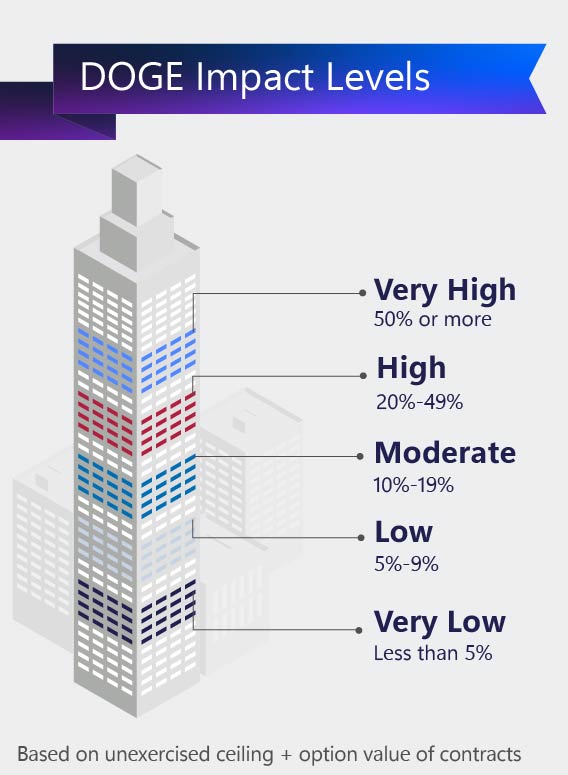
Because it’s rooted in the value of a vendor’s unexercised ceiling and options, TechnoMile’s DOGE Impact Score represents a valuable, forward-looking indicator of the impact of DOGE initiatives on a federal contractor’s business.
Summary of Analysis: USAID Exposure
For this initial analysis, our team focused on vendors doing business with USAID (United States Agency for International Development), which has been immobilized by the recent Executive Order pausing all foreign development assistance and the Trump administration’s stated plans to merge this agency with the State Department. Of the 500+ vendors our team analyzed that do work with USAID, here’s the breakdown of the level of impact to these companies:
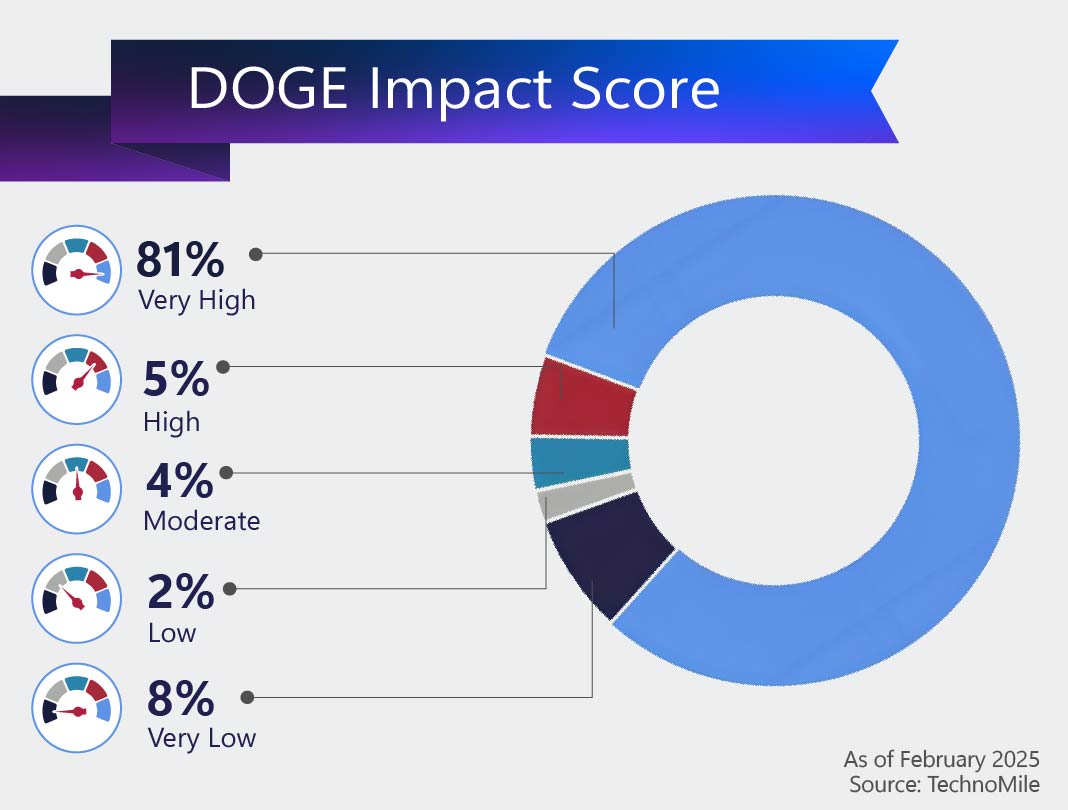
81% of vendors doing work with USAID fall into the Very High Impact category, indicating that the majority of their work is with this agency that currently has a stop-work order. The remaining 19% of companies have a DOGE Impact Score of <50%, ranging from High to Very Low.
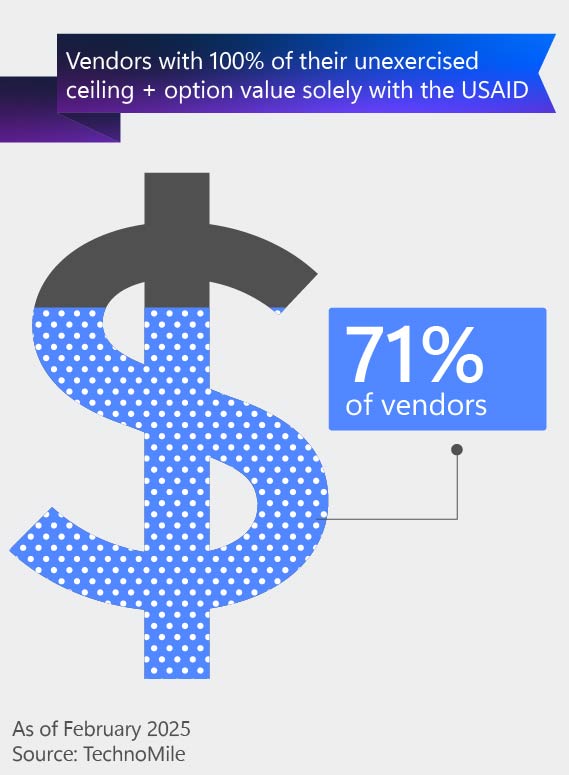
For 71% of the vendors we analyzed, contracts with USAID represent 100% of the unexercised ceiling + option value of their business’s contracts. These vendors must look at diversifying their work with other agencies in order to decrease their DOGE Impact Score. Interested in the details behind these data points? Get a copy of the TechnoMile DOGE Impact Analysis: USAID here.
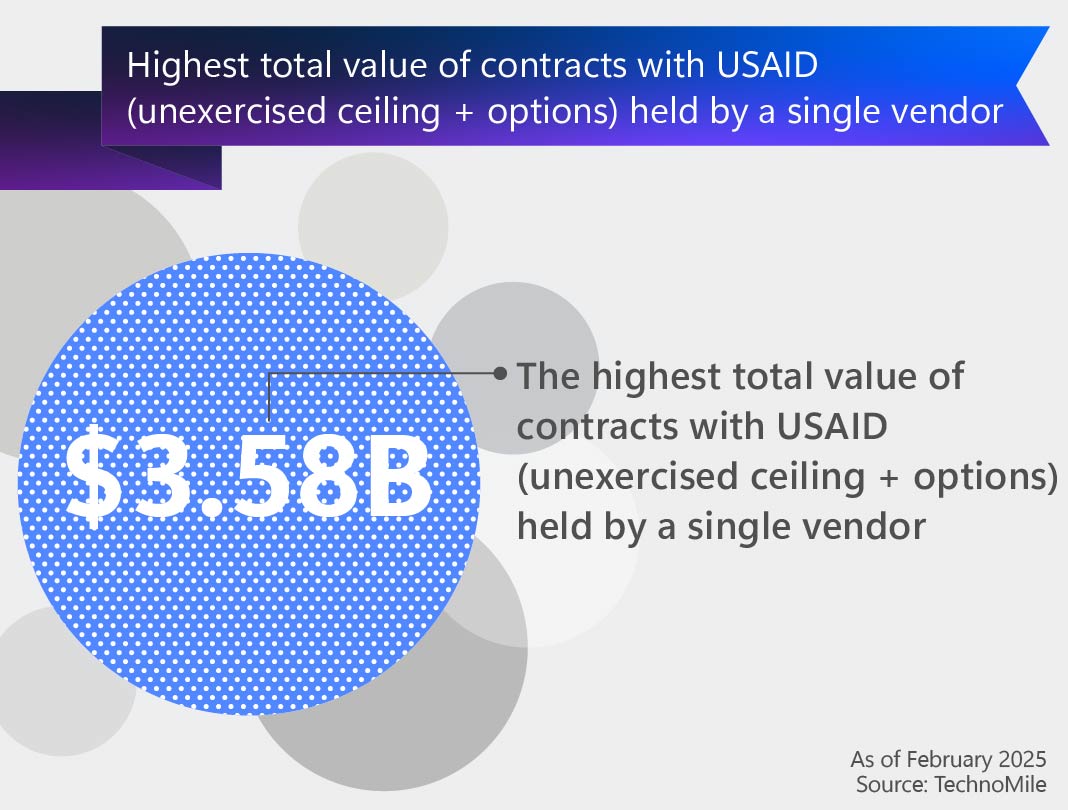
The highest total value of contracts with USAID (unexercised ceiling + options) held by a single vendor is ~$3.58B. This vendor’s DOGE Impact Score falls in the Very High tier and represents significant exposure as a result of recent DOGE action.
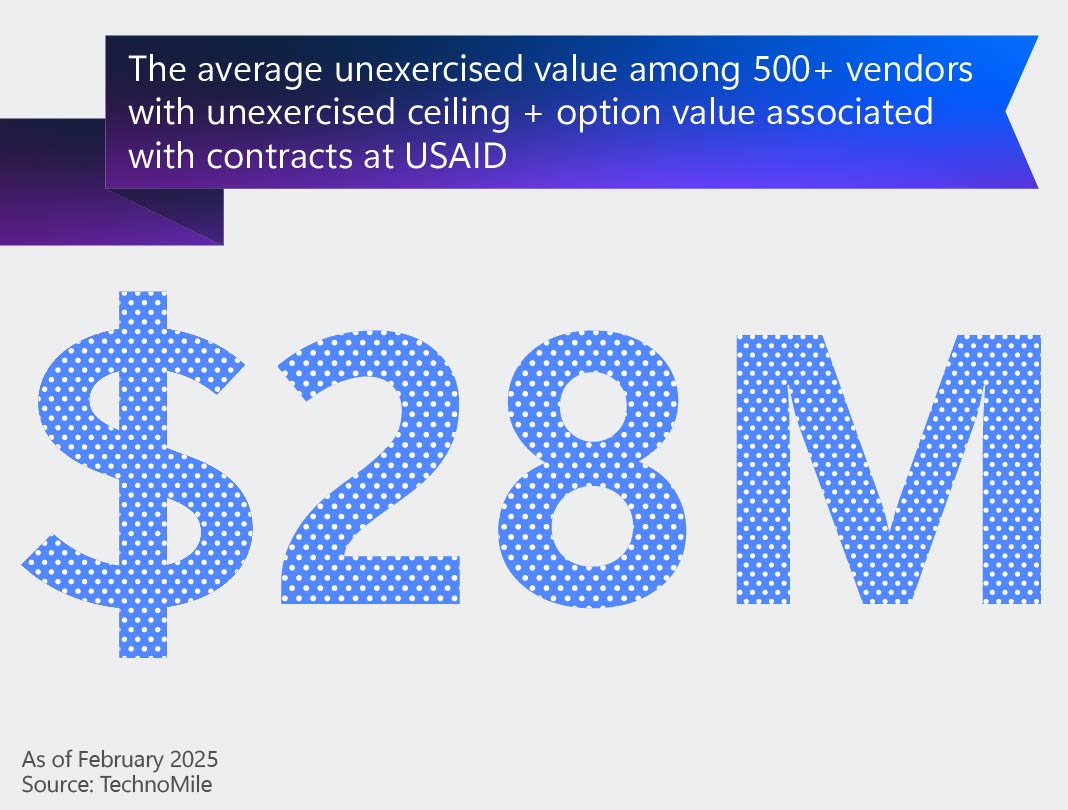
Among the more than 500 vendors with unexercised ceiling + option value associated with contracts at USAID, the average unexercised value is $28M. There are 26 vendors with more than $100M worth of unexercised value, which drives the average up significantly.
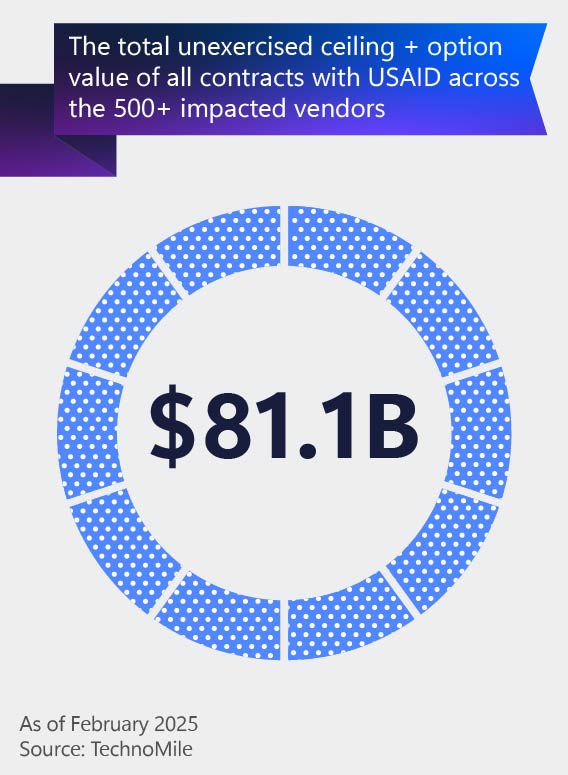
The total unexercised ceiling + option value of all contracts with USAID across the 500+ impacted vendors is more than $81.1B.
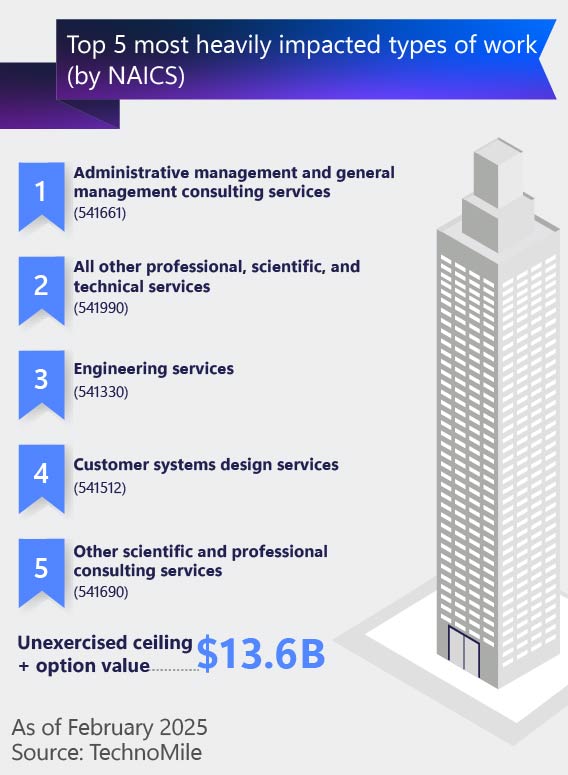
The top 5 most heavily impacted types of work (by NAICS) represent more than $13.6 billion in unexercised ceiling + option value.
Key Takeaways
While DOGE’s focus on government efficiency and cost reduction has and will undoubtedly create new challenges for federal vendors, it can also create opportunities for those businesses that can adapt and innovate.
- New Efficiencies in B2G Companies – DOGE’s strong focus on cost efficiency could increase competition among federal contractors, necessitating that B2G organizations improve their own operational efficiency, including investment in back-office tools and technology used to win and manage federal contracts.
- Unlocking Innovation in B2G Companies – DOGE’s emphasis on modernization could cultivate even more innovation within organizations that do business with the government, and these cutting-edge strategies could result in a competitive advantage for vendors.
- Disruption in B2G Procurement Processes – DOGE’s initiatives could disrupt existing, often long-time relationships with agency personnel and require companies to adapt their business development and capture strategies and processes. Federal contractors need to be prepared for a wave of changes to procurement processes, agency POCs, contract requirements, and timelines.
Wrapping Up and Next Steps
TechnoMile, a veteran of the federal contracting community for over a decade, remains committed to supporting its customers and the broader industry as we navigate the current turbulent environment. While acknowledging the value of the DOGE initiative, TechnoMile emphasizes its dedication to providing members of the federal marketplace with essential data and insights to inform strategic decision making in this rapidly evolving landscape of government contracting.
If you’d like to receive a copy of the TechnoMile DOGE Impact Analysis: USAID, click here.
If you’d like to speak to someone from our research team to help you understand DOGE’s impact or potential impact to your organization, contact us here.